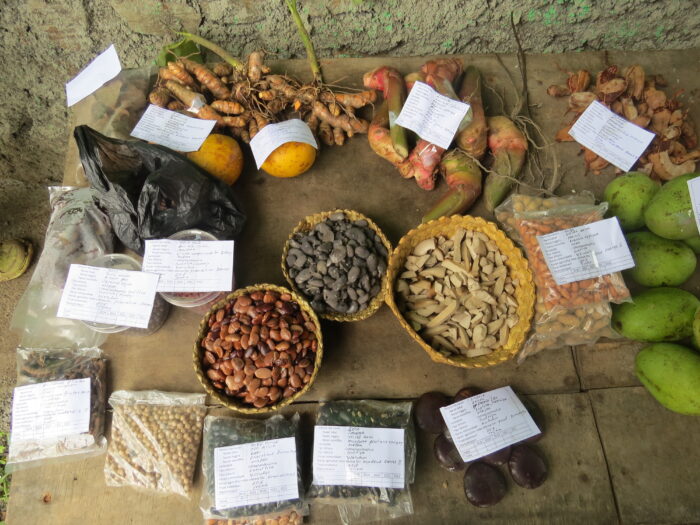Saving Wild and Cultivated Foods in Timor-Leste
August 1, 2022Last year, your support for family farmers in Timor-Leste allowed them to build two new seed banks! A brand new seed bank was built in the town of Hera, and another seed bank was added to our partner RAEBIA’s Eco-Farm and Biodiversity Learning Center just outside the capital city, Dili. You also helped our partner continue to run the four pre-existing seed banks that were built since 1997 in remote highland villages, thanks to the support of SeedChange donors like you.

For family farmers, community seed banks serve as valuable physical storage facilities, keeping local seeds and living plant material safe for use as a backup to their household seeds. In Timor Leste, the community seed banks don’t just preserve and protect cultivated seeds. They have also become an important place to showcase and learn about Timor’s wild foods. These wild plants have long been part of the local food culture, and provided essential food and medicine to the Timorese during years of occupation and war. Many people, like farmer and veteran Serafin de Santus, credit these wild foods for their survival and success in fighting for the country’s independence.
In 2021, thanks to your support for community seed banks, family farmers in Timor-Leste increased their access to staple crops and vegetables by:
25% for staple crops, like maize, beans, cassava and taro
30% for vegetable species
Now, farmers are leading the charge to remember centuries of farming practices that were nearly lost to years of violence, occupation and neglect, as well as to celebrate the wild foods that once sustained them. The seed banks you made possible are a key component of this work. Through them, farmers share the rich diversity of plants available, both cultivated and wild, as well as their knowledge about them. As a result, farming families can learn to grow more crops, reassert their sovereignty over their own food system, and enjoy greater nutritional diversity in their diets. And just as importantly to them, it ensures that younger generations won’t forget the remarkable role that traditional crops and wild foods played in Timor Leste’s long struggle for independence.
Serafin de Santus, a farmer and veteran of the war, lives in Fadobloko, Timor-Leste. He’s an active participant in his community seed bank.

We are very lucky: with this program we can collect all of the uncultivated plants, and transfer the information to the younger generation. If we didn’t have this program we could not transfer the information to the younger generation and the uncultivated plants would be lost. And then the younger generation would only be dependent on the rice, and the food that is imported from outside
Serafin de Santus